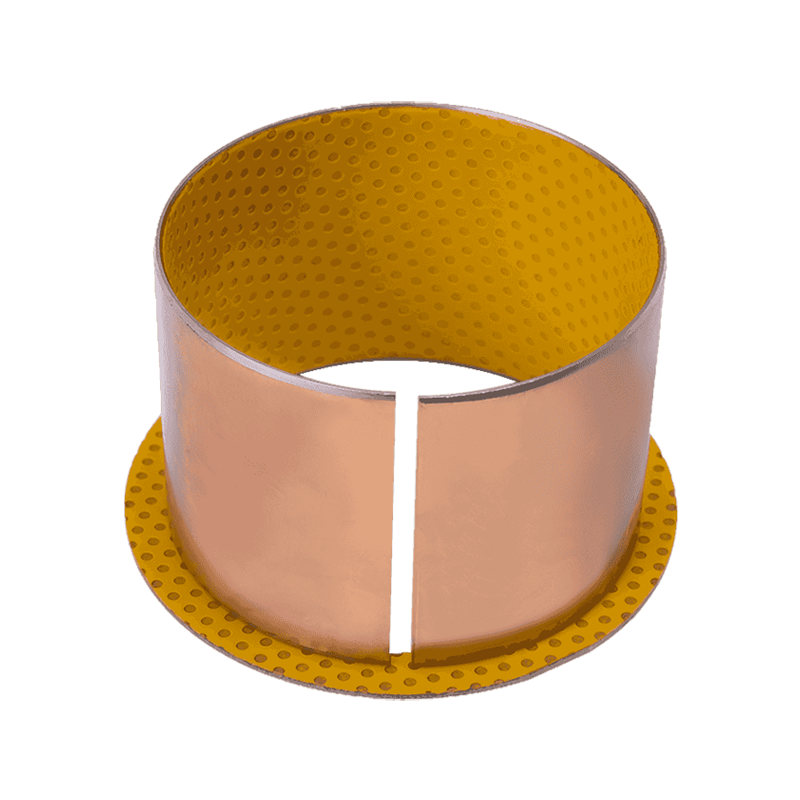Teflon bushings, made primarily from polytetrafluoroethylene (PTFE), are widely recognized for their low-friction, self-lubricating, and chemically resistant properties. These characteristics make them ideal for applications where smooth movement, minimal wear, and maintenance-free operation are critical. Understanding the material properties of Teflon helps explain why it is such a popular choice for bushings in diverse industries.
Content
1. Extremely Low Coefficient of Friction
One of the most significant properties of Teflon is its exceptionally low coefficient of friction, typically ranging from 0.05 to 0.10 when sliding against metals. This low friction allows Teflon bushings to:
-
Reduce wear on moving components
-
Minimize energy loss in mechanical systems
-
Enable smooth and quiet operation
As a result, Teflon bushings are particularly suitable for rotating or sliding applications, such as conveyor systems, industrial machinery, and automotive components.
2. Self-Lubricating Nature
Teflon bushings are inherently self-lubricating, meaning they do not require external lubricants like oil or grease for normal operation. This property provides several advantages:
-
Maintenance-free operation: Eliminates the need for regular lubrication schedules
-
Cleaner performance: Ideal for applications where lubricant contamination is a concern, such as food processing, pharmaceuticals, and electronics
-
Reduced wear: The polymer surface provides continuous low-friction contact, extending the service life of both the bushing and the mating parts
The combination of low friction and self-lubrication makes Teflon bushings highly efficient in applications that require consistent, long-term performance.

3. High Chemical Inertness
Teflon is highly resistant to chemical attack, including acids, bases, solvents, and other corrosive substances. This chemical inertness enables Teflon bushings to:
-
Operate in harsh chemical environments without degradation
-
Maintain their mechanical properties in contact with oils, fuels, or cleaning agents
-
Be used in chemical processing equipment, pumps, valves, and laboratory machinery
Because of this property, Teflon bushings are particularly suitable for applications where metal bushings would corrode or require protective coatings.
4. High Temperature Resistance
Teflon bushings can withstand wide temperature ranges, typically from -200°C to +260°C (-328°F to +500°F), without losing their mechanical integrity. This makes them suitable for:
-
High-temperature industrial processes
-
Automotive components exposed to engine heat
-
Equipment operating in extreme environmental conditions
This high thermal stability ensures dimensional stability and consistent low-friction performance, even under thermal stress.
5. Low Moisture Absorption
Teflon has minimal water absorption, which helps maintain its mechanical properties and low-friction behavior in humid or wet environments. This property contributes to:
-
Reliable performance in marine, outdoor, or food-related applications
-
Resistance to swelling or dimensional changes caused by moisture
-
Long-term durability in conditions where water or liquids are present
6. Electrical Insulation
While not directly related to friction, Teflon’s excellent electrical insulating properties make it useful in bushings used in electrical and electronic applications, where it can prevent current leakage while supporting moving parts.
7. Wear and Creep Resistance
Although Teflon is soft compared to metals, modern Teflon bushings often include reinforcements such as glass fibers or bronze composites to improve:
-
Load-bearing capacity
-
Wear resistance under high-pressure conditions
-
Dimensional stability over prolonged use
These composite Teflon bushings retain the low-friction advantage while offering increased durability for heavy-duty applications.
Conclusion
The main material properties of Teflon bushings that make them ideal for low-friction applications include:
-
Extremely low coefficient of friction for smooth movement
-
Self-lubricating surface that reduces maintenance needs
-
High chemical resistance for operation in corrosive environments
-
Wide temperature tolerance for thermal stability
-
Minimal moisture absorption for consistent performance
-
Optional reinforcement for increased wear and load resistance
These properties enable Teflon bushings to provide long-lasting, efficient, and reliable operation across a wide range of industries, including automotive, food processing, chemical processing, electronics, and industrial machinery. By combining low friction, self-lubrication, and chemical inertness, Teflon bushings are a versatile solution for applications where both performance and durability are critical.



 English
English русский
русский Español
Español عربى
عربى


